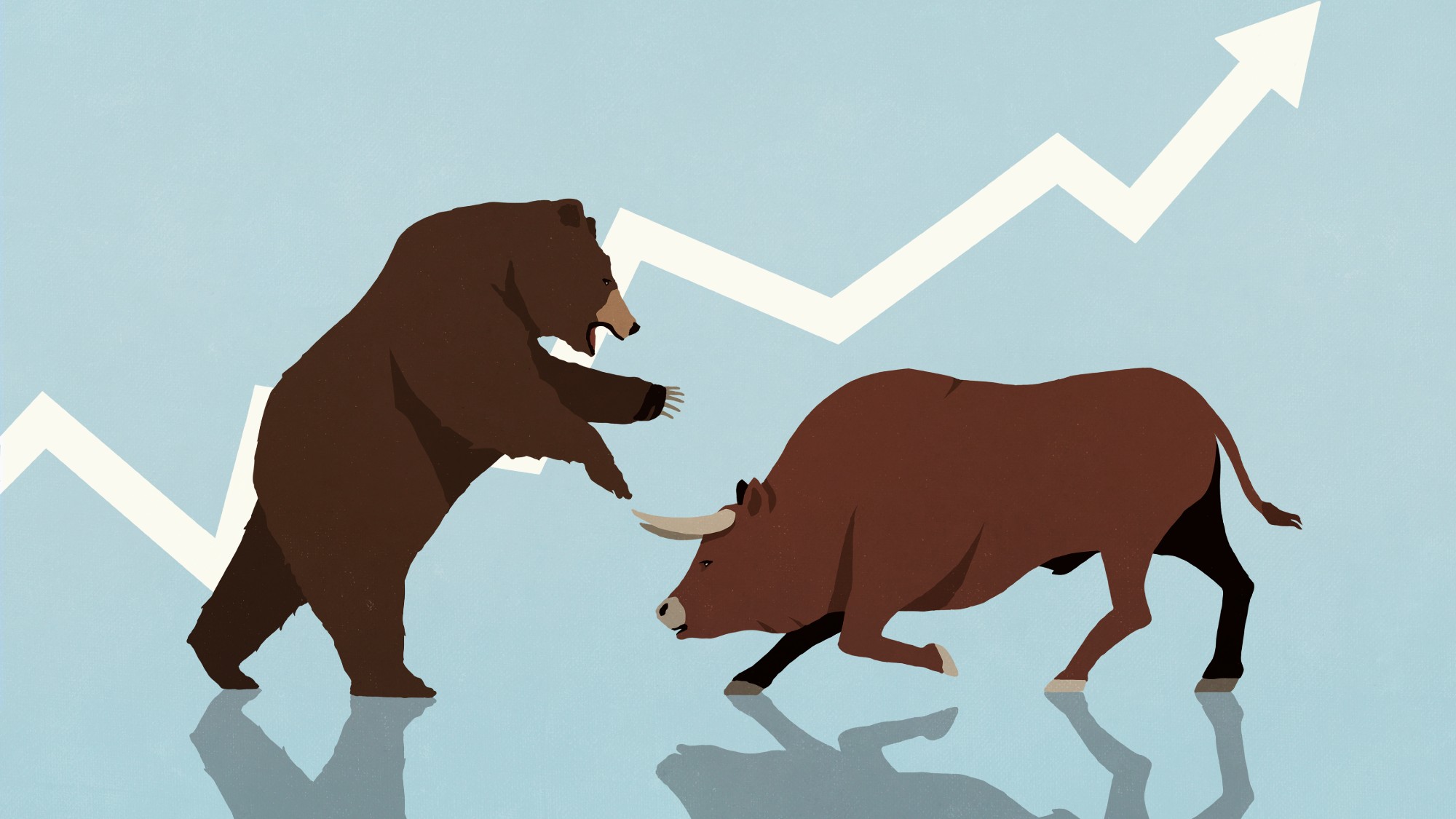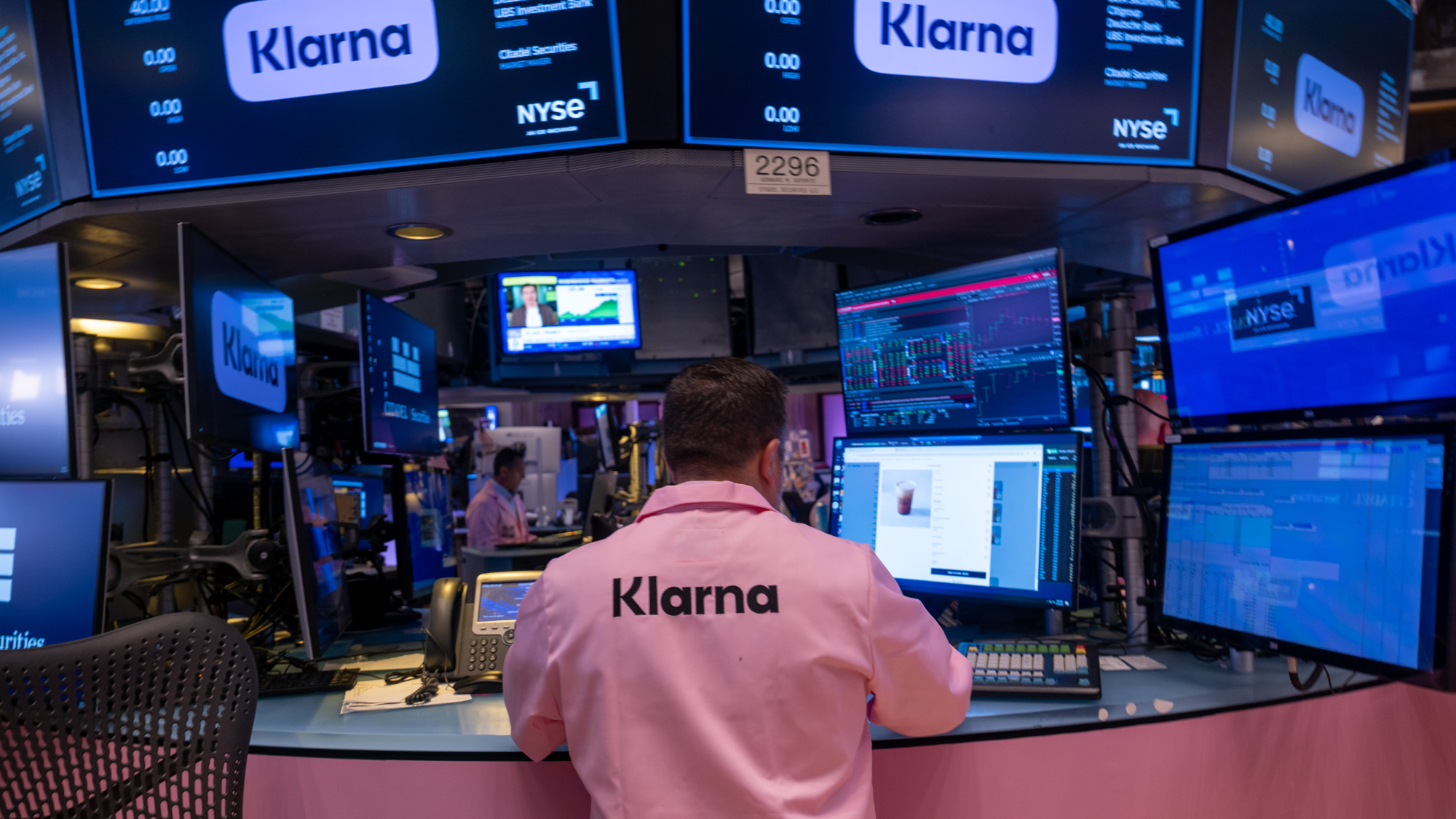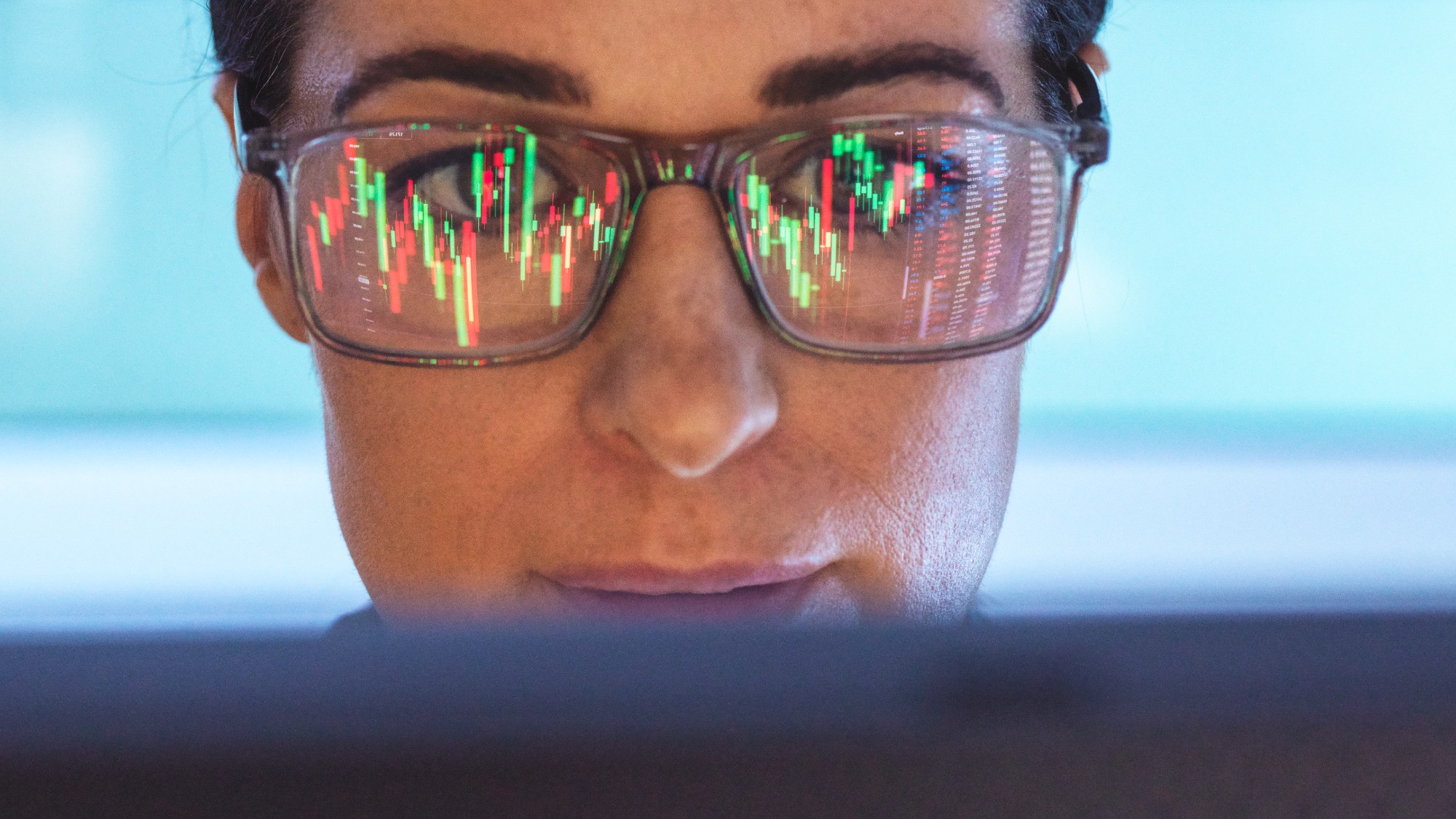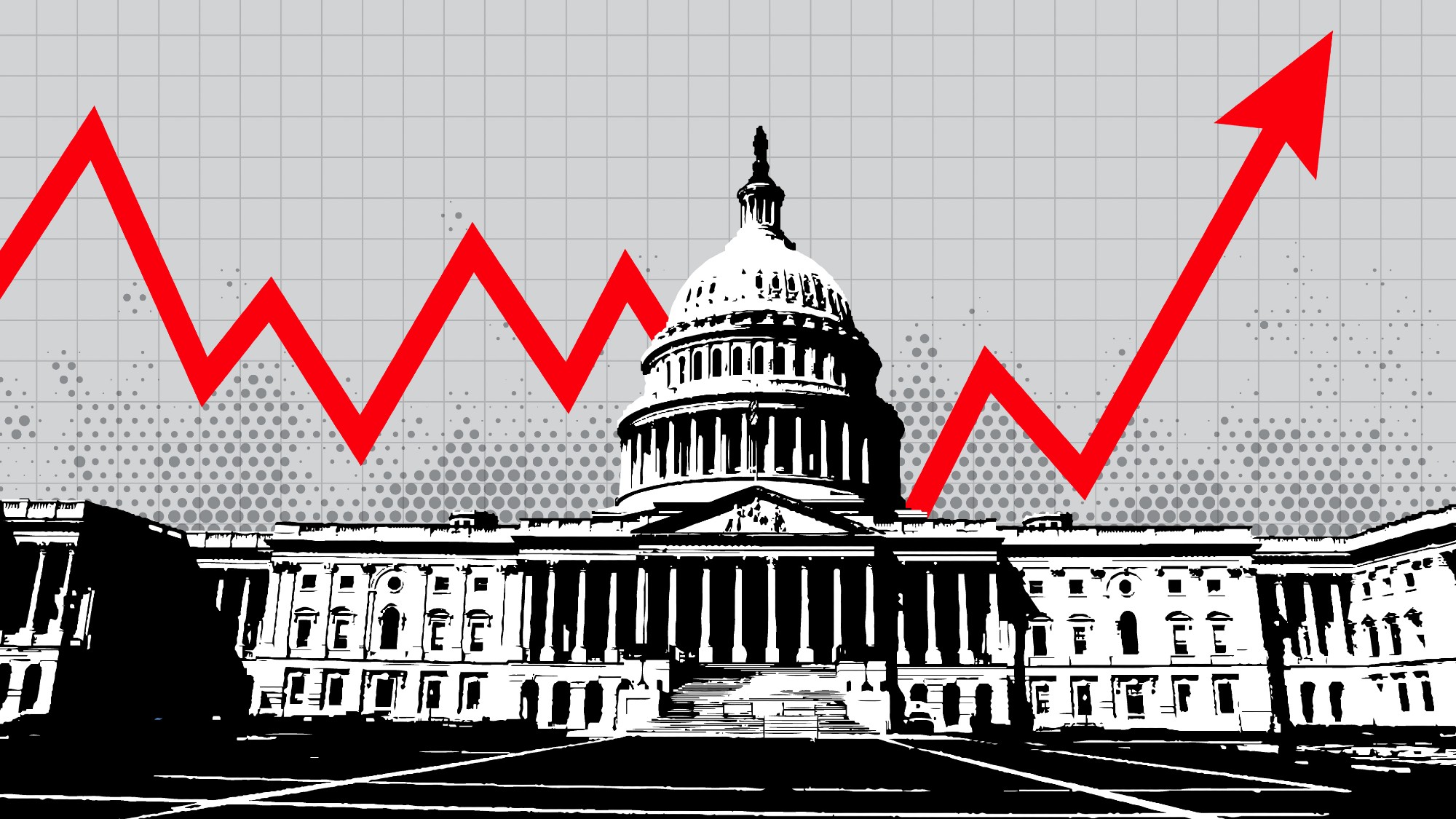An investor's guide to dividend yield
Here's a look at how this calculation works, what it indicates, and how to use it in a smart way


A free daily email with the biggest news stories of the day – and the best features from TheWeek.com
You are now subscribed
Your newsletter sign-up was successful

Dividends can be an easy way to bring in a steady flow of cash. But as you start to dip your toe into investing in dividend stocks or funds, you may feel uncertain about how to assess potential opportunities. That's where dividend yield can come into play.
Dividend yield is one measure investors can use to help them determine the returns they might expect to get, and thus compare different dividend-paying stocks. Here's a look at how this calculation works, what it indicates, and caveats about using it you'll want to know.
What is a dividend yield?
Dividends are the form in which a company pays out each year's profits to shareholders, as opposed to those it retains to grow its business. A dividend yield, essentially, is how you measure the return from dividends on a stock or share index. By looking at dividend yield, an investor can assess how much they could earn in dividend payouts each year relative to the amount they pay per share.
The Week
Escape your echo chamber. Get the facts behind the news, plus analysis from multiple perspectives.

Sign up for The Week's Free Newsletters
From our morning news briefing to a weekly Good News Newsletter, get the best of The Week delivered directly to your inbox.
From our morning news briefing to a weekly Good News Newsletter, get the best of The Week delivered directly to your inbox.
Dividend yield is expressed as a percentage, and it's calculated by dividing the dividends per share by the price per share. Here's an example from Forbes: "Let's say a public company's share price is $50, and it pays annual dividends equal to $1.50 per share. To determine the dividend yield, divide the dividend amount per share by the price per share: $1.50 / $50 = 0.03. Convert the decimal to a percentage, and you get a dividend yield of 3 percent. That means you would earn 3 percent in dividends per year from an investment in the company's stock at this price — assuming the dividend payout remained unchanged."
Are dividends a surefire way to make money?
Not exactly. "Companies don't have to pay dividends," Kiplinger points out. They may pay them one year, but then not the next.
Further, a "company may vary its dividend according to how profitable the past year has been; whether it needs to hold on to more of its profits to invest in maintaining or growing its business; or whether it has more cash than it needs and wants to make an extra one-off payment to shareholders," Kiplinger explains. In other words, there are a number of factors that can change a dividend yield, from industry trends to company fundamentals.
What should you pay attention to when looking at dividend yields?
Yields "from 2 percent to 6 percentare generally considered to be a good dividend yield," according to Forbes. However, that number is far from a green light to go ahead and invest.
A free daily email with the biggest news stories of the day – and the best features from TheWeek.com
Evaluating a stock based solely on dividend yield is "not recommended," Investopedia notes, given that "dividend data can be old or based on erroneous information." For instance, a firm could have a very high yield, but that could mean a dividend cut is anticipated. "Many companies have a very high yield as their stock is falling," Investopedia points out. Or, a firm with a low yield "might still be attractive if the dividend is expected to grow rapidly in the years ahead," Kiplinger says.
When you apply via our links we may earn an affiliate commission.
So what else should investors take into consideration? Kiplinger recommends checking dividend sustainability by looking at either dividend cover or payout ratios. Dividend cover "measures the number of times greater the net profits available for distribution are than the dividend payout," while payout ratios show how much of a company's net earnings are paid out in dividends.
Additionally, investors should "look at dividend yield as part of the big picture, alongside other metrics like performance versus major benchmark indexes and corporate fundamentals," Forbes recommends. Investors will also want to consider their personal financial situation and preferences when making investment decisions, taking into account their investment goals, time horizon, and risk tolerance.
What are some dividend stocks to invest in?
For investors who are hoping that dividend investing can result in a dependable, long-term cash flow, here's a look at some potential investments to consider. The following blue chip dividend stocks were identified by Kiplinger, which used data from S&P Global Market Intelligence to screen the Dow Jones Industrial Average for Wall Street analysts' highest-rated blue chip dividend stocks, focusing on dividend yields of at least 1 percent.
- Microsoft: This is "analysts' top-rated name among all 30 Dow stocks," Kiplinger says, "with a consensus recommendation just shy of Strong Buy." It reports that shares are up and further outperformance is expected, particularly given Microsoft's latest work in artificial intelligence
- UnitedHealth Group: This is the market's largest health insurer, based on market value as well as revenue, per Kiplinger. And the industry already is known as a "defensive" sector — Kiplinger notes that blue chip stocks within such sectors "tend to hold up better in bear markets."
- Coca-Cola: While Coca-Cola got hit hard by the pandemic, its sales are now bouncing back and analysts are praising the company for its "ability to offset input cost inflation with pricing power," Kiplinger notes. This also happens to be a stock favored by Warren Buffet, making up over 8.5 percent of Berkshire Hathaway's portfolio.
Becca Stanek has worked as an editor and writer in the personal finance space since 2017. She has previously served as the managing editor for investing and savings content at LendingTree, an editor at SmartAsset and a staff writer for The Week. This article is in part based on information first published on The Week's sister site, Kiplinger.com
New Tax Rules for 2023: Download your free issue of The Kiplinger Tax Letter today. No information is required from you.
Becca Stanek has worked as an editor and writer in the personal finance space since 2017. She previously served as a deputy editor and later a managing editor overseeing investing and savings content at LendingTree and as an editor at the financial startup SmartAsset, where she focused on retirement- and financial-adviser-related content. Before that, Becca was a staff writer at The Week, primarily contributing to Speed Reads.
-
 How the FCC’s ‘equal time’ rule works
How the FCC’s ‘equal time’ rule worksIn the Spotlight The law is at the heart of the Colbert-CBS conflict
-
 What is the endgame in the DHS shutdown?
What is the endgame in the DHS shutdown?Today’s Big Question Democrats want to rein in ICE’s immigration crackdown
-
 ‘Poor time management isn’t just an inconvenience’
‘Poor time management isn’t just an inconvenience’Instant Opinion Opinion, comment and editorials of the day
-
 What’s the difference between a bull market and bear market?
What’s the difference between a bull market and bear market?The Explainer How to tell if the market is soaring or slumping.
-
 What is a bubble? Understanding the financial term.
What is a bubble? Understanding the financial term.the explainer An AI bubble burst could be looming
-
 What is day trading and how risky is it?
What is day trading and how risky is it?the explainer It may be exciting, but the odds are long and the risks high
-
 Retail investors drive a flurry of IPOs
Retail investors drive a flurry of IPOsFeature After years of slowness, companies like Klarna and Gemini are reviving the IPO market
-
 What to know before 'buying the dip'
What to know before 'buying the dip'the explainer Purchasing a stock once it has fallen in value can pay off — or cost you big
-
 3 tips to prepare in case of a recession
3 tips to prepare in case of a recessionthe explainer President Donald Trump admits a recession is possible amid his newly imposed tariffs
-
 How do presidential elections affect the stock market?
How do presidential elections affect the stock market?The explainer If you are worried, take heart: Market changes in response to what is happening politically are likely to be short-term
-
 4 tips to build an investment strategy for the long term
4 tips to build an investment strategy for the long termThe Explainer This kind of financial strategy can serve you for years to come
